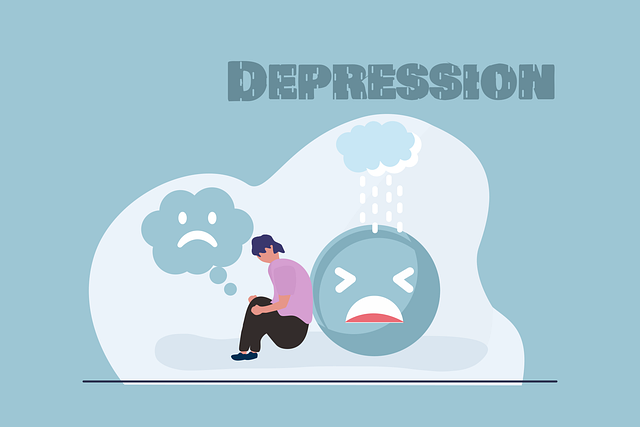Burnout among healthcare providers, including therapists at Englewood American Sign Language Therapy (EASLT), is a pressing issue. Long hours, heavy workloads, and stress contribute to decreased satisfaction and productivity. EASLT combats this through proactive measures like Mental Health Education Programs, wellness podcasts, and public awareness campaigns normalizing stress management conversations. They promote cultural sensitivity in mental healthcare, integrate evidence-based stress relief techniques (mindfulness, CBT), and prioritize staff well-being with flexible scheduling, breaks, and relaxation spaces. These strategies foster a supportive environment, enhance patient care, and revolutionize healthcare by prioritizing employee work-life balance and mental wellness.
“In the demanding landscape of healthcare, burnout among providers is a pressing issue. This comprehensive guide explores effective strategies to combat burnout, focusing on the unique challenges faced by professionals like those at Englewood American Sign Language Therapy. We delve into understanding the root causes, emphasizing the importance of communication and support systems. Additionally, we present evidence-based stress management techniques, highlight sustainable work environment practices, and encourage professional development alongside self-care practices to foster a resilient and thriving healthcare workforce.”
- Understanding Burnout Among Healthcare Providers
- The Role of Communication and Support Systems
- Evidence-Based Stress Management Techniques
- Creating a Sustainable Work Environment
- Encouraging Professional Development and Self-Care Practices
Understanding Burnout Among Healthcare Providers

Burnout among healthcare providers is a growing concern, impacting not only individual well-being but also patient care and overall healthcare system performance. It’s a complex issue that stems from factors like heavy workloads, long working hours, high-stress environments, and a lack of support or recognition. At Englewood American Sign Language Therapy, we recognize that burnout can affect therapists, doctors, nurses, and other professionals alike, leading to decreased job satisfaction, decreased productivity, and even physical and mental health deterioration.
To combat this, it’s essential to implement strategies that promote resilience and well-being. This includes incorporating Mental Health Education Programs Design tailored for healthcare workers, encouraging the production of Mental Wellness Podcast Series that offer support and practical advice, and developing Public Awareness Campaigns to normalize conversations around burnout and stress management. By addressing these issues proactively, healthcare organizations can foster a culture of care that prioritizes both provider wellness and the quality of patient care.
The Role of Communication and Support Systems

In the relentless pursuit of quality healthcare, preventing burnout among providers is paramount to maintaining a robust and compassionate medical system. Communication and support systems play an indispensable role in achieving this goal. At Englewood American Sign Language Therapy, for instance, therapists not only focus on enhancing mental wellness through specialized ASL services but also foster a culture of support within their teams. Open lines of communication, where professionals can express concerns, share workloads, and offer peer-to-peer assistance, significantly mitigate stress and promote resilience.
Integrating cultural sensitivity in mental healthcare practice further enriches these systems. Recognizing and addressing the unique needs and challenges of diverse patient populations equips providers with the tools to deliver more personalized care. This approach not only improves patient outcomes but also creates a more supportive environment for healthcare workers, thereby reducing burnout risks. Moreover, incorporating strategies that effectively target anxiety relief within these communication networks can foster a sense of collective well-being, ensuring professionals feel valued and empowered in their roles.
Evidence-Based Stress Management Techniques

In the relentless pursuit of quality healthcare, burnout prevention is paramount, especially for mental health professionals like those at Englewood American Sign Language Therapy. Evidence-based stress management techniques emerge as powerful tools in mitigating this growing concern. Recognized strategies include mindfulness meditation, cognitive behavioral therapy (CBT), and progressive muscle relaxation—all backed by robust research demonstrating their efficacy in reducing stress levels and enhancing resilience.
These methods are particularly effective because they empower healthcare providers with self-care mechanisms that directly address the root causes of burnout. Regular practice of these techniques can foster a sense of calm, improve emotional regulation, and enhance coping skills—essential elements for navigating challenging situations, such as those outlined in crisis intervention guidance. By integrating evidence-based stress management into their routines, professionals at Englewood American Sign Language Therapy can better serve their patients while preserving their own mental well-being, ultimately contributing to a more sustainable and fulfilling healthcare environment.
Creating a Sustainable Work Environment

Creating a sustainable work environment is a proactive approach to prevent burnout among healthcare providers, particularly in fields like American Sign Language (ASL) therapy. Organizations such as Englewood ASL Therapy can lead the way by fostering a culture that values work-life balance and employee well-being. This includes implementing flexible scheduling options, encouraging regular breaks during shifts, and providing dedicated spaces for relaxation and social interaction.
By prioritizing these aspects, healthcare institutions can enhance job satisfaction and reduce stress levels among their staff. Additionally, incorporating self-awareness exercises and promoting open discussions around mental health through policy analysis and advocacy is crucial. These strategies not only support individual providers’ mental health but also contribute to a more resilient and supportive work environment overall.
Encouraging Professional Development and Self-Care Practices

Healthcare providers often face intense workloads and demanding environments, which can lead to burnout if left unaddressed. Encouraging professional development and self-care practices is a proactive approach to combat this issue. Providing opportunities for continuous learning through workshops, conferences, and mentorship programs allows therapists, such as those at Englewood American Sign Language Therapy, to stay updated with the latest research and techniques in their field. This not only enhances their expertise but also instills a sense of growth and purpose.
Additionally, integrating empathy-building strategies and mindfulness meditation into daily routines can significantly contribute to mental wellness. The Mental Wellness Podcast Series Production can be a valuable resource for healthcare providers to explore these topics further. By fostering an environment that prioritizes self-care and emotional well-being, healthcare organizations can ensure their staff remains motivated, engaged, and resilient in the face of challenges.
Burnout among healthcare providers is a pressing issue, but through comprehensive strategies, such as fostering open communication, implementing evidence-based stress management techniques, and prioritizing sustainable work environments, we can create a healthier and more supportive ecosystem. Encouraging professional development and self-care practices, like those explored by Englewood American Sign Language Therapy, plays a crucial role in preventing burnout and ensuring healthcare providers can continue to deliver quality care with resilience.









